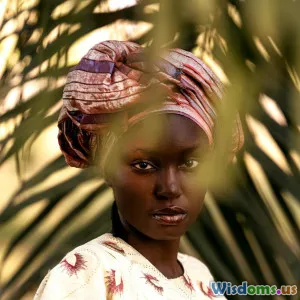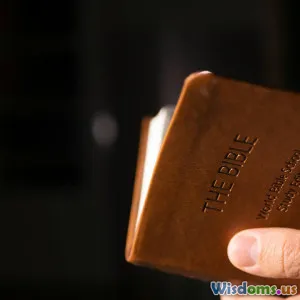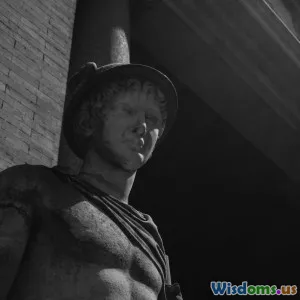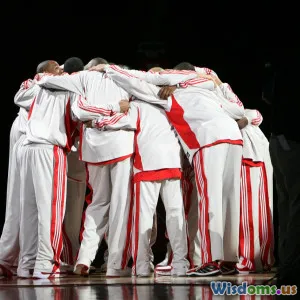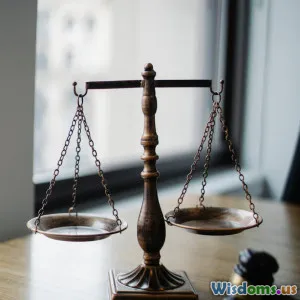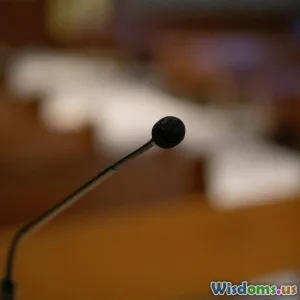
Cultural Myths and Their Modern Relevance
8 min read Explore the enduring power of cultural myths and their surprising roles in shaping modern identity, beliefs, and values. (0 Reviews)
Cultural Myths and Their Modern Relevance
Throughout human history, myths have served as more than mere stories — they are threads woven into the fabric of society, culture, and identity. These cultural myths, passed down through generations, were once considered sacred truths, explaining the cosmos, human nature, and societal laws. Yet, their influence persists today, even in a digital age dominated by facts and technology. Why do myths endure, and how do they continue to shape modern life? This article ventures into the realm of cultural myths, unraveling their power and contemporary relevance.
The Enduring Power of Cultural Myths
Cultural myths function as foundational narratives that help communities answer fundamental questions: What is our place in the world? Why do we live the way we do? The Greek myth of Prometheus, for example, tells of a titan who defied the gods to gift fire — symbolizing knowledge and enlightenment — to humanity. This narrative was not just a captivating tale but a lens through which ancient Greeks viewed human progress and rebellion.
In the modern context, myths like Prometheus resonate as metaphors for human innovation and the pursuit of knowledge despite risks. When Elon Musk speaks about making humanity a multiplanetary species, some commentators liken his vision to modern Promethean quests, emphasizing the myth's transformative symbolism.
Myth as Social Glue: How Stories Create Identity
Myths are powerful identity-building tools that foster a sense of belonging and community cohesion. The Norse myths, such as those about Odin and Thor, once united Scandinavian people, providing shared values like bravery and honor. Today, the revitalization of Norse mythology in popular culture—through franchises like Marvel’s “Thor” films or video games such as “God of War”—shows how ancient narratives can modernize identity pulses.
Moreover, Indigenous myths continue to underpin cultural identity and spiritual practices. Take the Dreamtime myths of Australian Aboriginal peoples, which describe the origins of the land, animals, and laws. These myths not only symbolize spiritual beliefs but also play an integral role in legal claims and land rights advocacy, showing myths’ real-world impact on societal structures.
Myths as Moral Compass in a Complex World
Many myths encapsulate ethical lessons or cautionary tales that transcend epochs. The Judeo-Christian narrative of the Exodus, portraying liberation from oppression and the pursuit of justice, remains deeply influential in modern social and political discourses about freedom and human rights worldwide. It has inspired leaders like Martin Luther King Jr., who famously drew upon biblical imagery in his advocacy for civil rights.
Similarly, the Hindu epic Mahabharata contains the Bhagavad Gita, a philosophical dialogue illustrating duty, righteousness, and spirituality amidst chaos. Its teachings are quoted even by modern psychologists and philosophers exploring how individuals confront moral dilemmas and find purpose.
Myth in Popular Culture and Media
Modern society continues to absorb, reinterpret, and adapt myths, proving their flexibility and vitality. The “Harry Potter” series, for instance, integrates archetypal mythic elements such as the hero’s journey, epic battles between good and evil, and transformative quests. This narrative structure speaks to timeless human experiences and provides catharsis and inspiration to millions.
Likewise, superhero films and literature often draw explicitly from mythic structures and characters, redefining them within contemporary contexts. Wonder Woman's roots in Greek mythology as an Amazon warrior princess reflect the ongoing relationship between myth and modern ideals about gender roles and heroism.
The Psychological Lens: Myths and the Collective Unconscious
Swiss psychiatrist Carl Jung introduced the concept of the collective unconscious, postulating that myths are expressions of shared unconscious archetypes common to all humans. These archetypes appear as recurrent themes — the hero, the mentor, the trickster — that manifest in dreams, art, and storytelling.
Understanding myths through this psychological lens provides insights into human behavior and societal dynamics. For instance, the trickster archetype, evident in figures like Loki in Norse myth or Anansi in African folklore, reflects human impulses for cleverness, disruption, and change. Recognizing these archetypes fosters empathy and self-awareness, bridging ancient wisdom with modern human experience.
Mythmaking as a Tool for Modern Narratives
Beyond ancient traditions, contemporary societies continue the practice of mythmaking. National founding myths, such as the American legend of George Washington and the cherry tree, craft cultural ideals around honesty and leadership—even when their factual accuracy is questionable.
In technology and business, companies create myths around their origins and visionary leaders to inspire and align teams. Steve Jobs’ image as a visionary rebel is an example of modern mythmaking that motivates innovation by blending fact and symbolism.
As myth scholar Karen Armstrong notes, "Myths do not deceive; they inspire us to achieve what we are capable of becoming."
Conclusion: Embracing the Timeless Lessons of Myths
Far from being relics of a primitive past, cultural myths remain vibrant components of modern life. They serve as mirrors reflecting our deepest hopes, fears, and questions, and as guides illuminating paths through the complexities of existence. Whether through art, politics, psychology, or social identity, myths connect us across time and space.
Recognizing the power and relevance of myths challenges us to reinterpret our narratives more consciously, embracing their insights to foster meaning, resilience, and community in the 21st century. By engaging actively with myths—not just as stories but as living legacies—we gain new perspectives on humanity itself.
References & Further Reading:
- Armstrong, Karen. The Case for God, 2009.
- Jung, Carl G. The Archetypes and The Collective Unconscious, 1959.
- Campbell, Joseph. The Hero with a Thousand Faces, 1949.
- Eliade, Mircea. Myth and Reality, 1963.
- Eliade, Mircea. The Sacred and the Profane, 1957.
Dive deeper, question your favorite stories, and discover what your own cultural myths reveal about who you are — perhaps it’s time to find a new myth of your own making.
Rate the Post
User Reviews
Popular Posts












